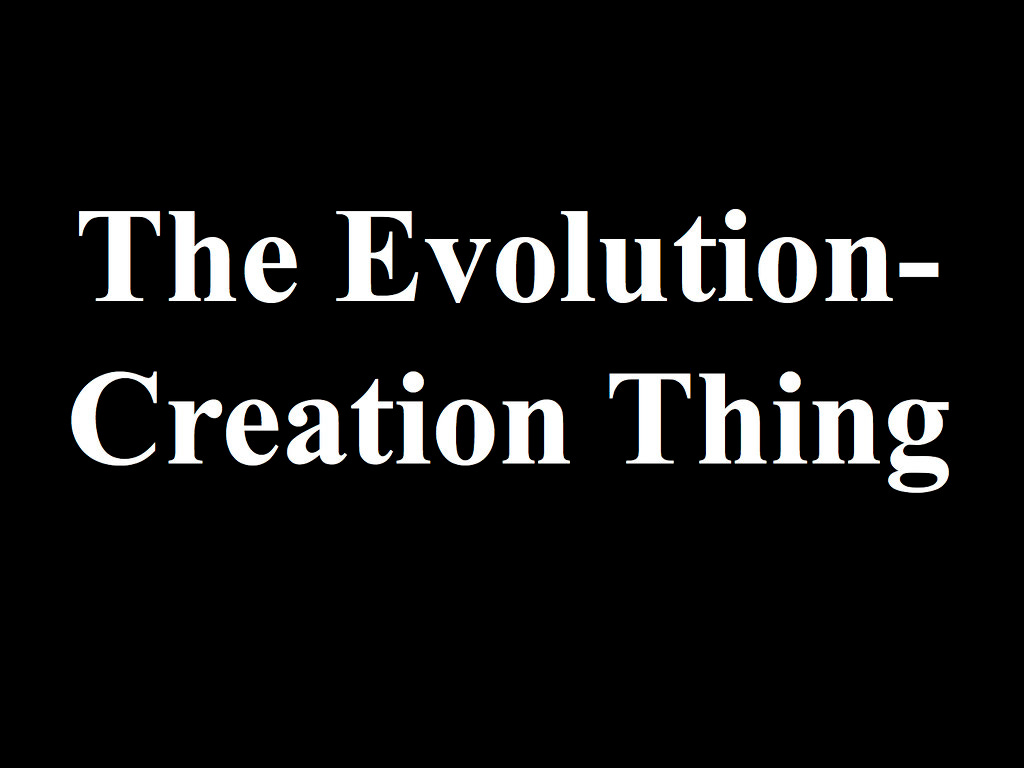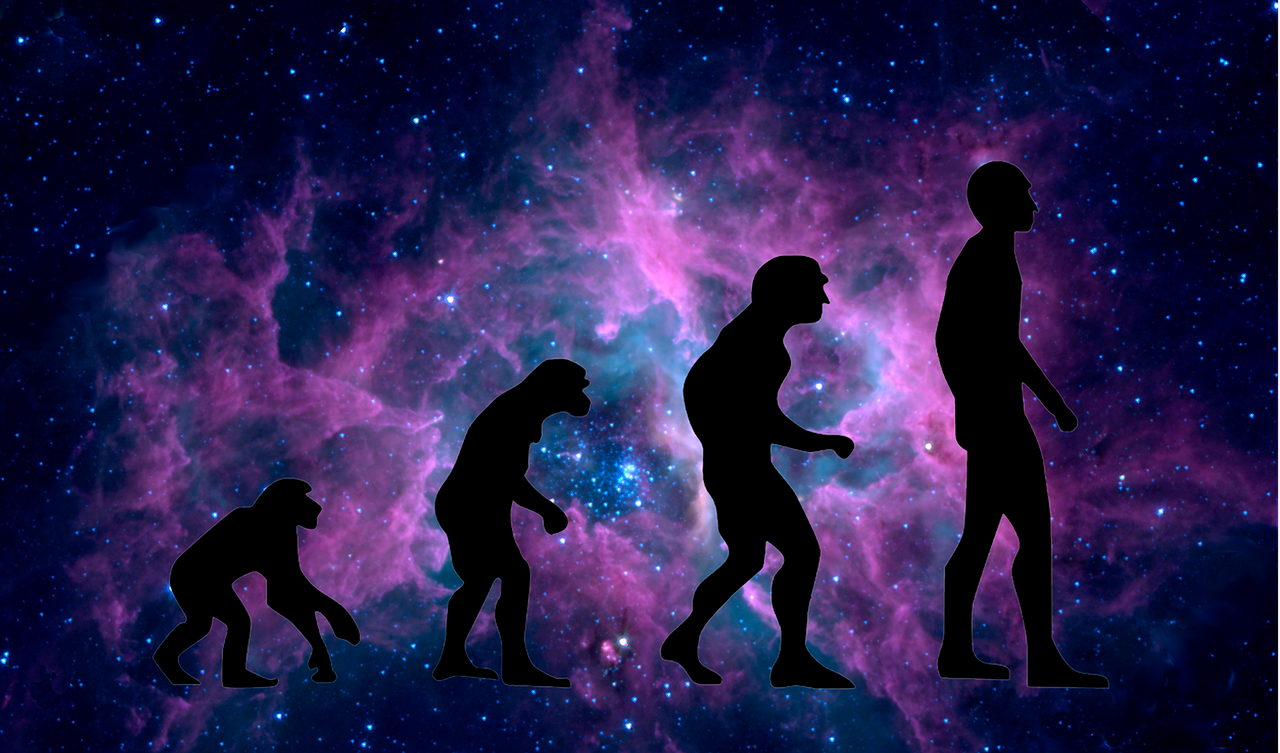Is the theory of a universal ‘conscious design’ a ‘science’?
Looking beyond the intelligent design debate
Let us first begin by asking the question of whether the more commonly known theory of ‘intelligent design‘ (ID) is scientific. ID proponents assume that the origin of life cannot be explained solely by natural causes and that a higher intelligence stands behind the formation of the universe and evolution. They argue that ID rests on scientific evidence-based reasoning supposedly demonstrating that “certain features of the universe and of living things are best explained by an intelligent cause, not an undirected process such as natural selection.”
Can we label ID a ‘science’? My answer is: No, it isn’t.
Because ID still clings to a religious Christian-centered form of biblical interpretation of reality, that can’t wrap its head around the fact that evolution is true, anthropocentrism is dead and humans are not the apex of creation but only transitional beings, it doubts common ancestry and, even worse, can’t hide its conservative political sympathies.
Nevertheless, let me use the term ‘conscious design’ (CD) in its broader sense, for a less religiously, let alone politically motivated worldview where one doesn’t feel having any affiliation with the official ID movement but maintains the idea that evolution is a guided process, life is the creation of a higher power, the universe is not a blind clockwork without purpose and meaning but rather a manifestation of an indwelling divinity. That is, let us abstract from our religious context and accept evolution as a scientific fact by focusing on the idea that there is a CD in Nature, there is an evolutionary conscious-Force behind the unfolding of the natural world, and that a goal-driven purposeful conscious indwelling Spirit is organizing the universe.
Then, let me repeat the question. Is CD, in the above-described sense and meaning, a ‘science’?
My answer remains: No, it still isn’t. Or, at least, it isn’t an ordinary form of Newtonian science based on an exclusively third-person empiric worldview that admits only the analytic reason as cognitive apprehension.
However, such a CD theory isn’t pseudo-science either. Asking whether a higher power stands behind evolution is a question pertaining to the philosophy of Nature, it is metaphysics, and it is a speculative approach to fundamental existential questions that can’t be downgraded as pseudo-science, as long it does not pretend to be science itself.
Nevertheless, it is legitimate to start from what science knows and argue from the standpoint of the last scientific findings in evolutionary biology, physics, chemistry, astronomy, etc. There is nothing pseudo-scientific or anti-scientific in pretending that science might help us to frame trans-scientific hypotheses.
Should ID or CD be taught in biology classes? My answer: No, it shouldn’t.
However, whether evolution is guided or unguided may well be discussed in a philosophy class. No more and no less than the existence of God, the mind-body problem, whether we have free will, a soul, or if there is a life after death, etc. There is nothing educationally wrong to propose the question about our origins in the context of a philosophical conversation. On the contrary, it helps young minds to develop critical thinking that encompasses also a first-person understanding of the world, extending a much too exclusively materialistic thinking to philosophically sound critical thinking and where reason and intuition aren’t irreconcilable opposites but rather complementary aspects of our cognitive abilities. I would, however, also not bring this discussion into a religion class. The topic of CD goes way beyond our religious traditions and local cultural context. It is a question of natural philosophy, not religion.
Should evolution be taught in schools as an ‘alternative’ theory? My answer: No, evolution is a scientific fact, and shouldn’t be presented as an opinion.
However, scientists or biology teachers shouldn’t present evolution as an unguided process either. This is, again, a metaphysical statement that should not be presented as a scientific fact in science classes. If evolution is guided or unguided remains a matter of metaphysical speculation. While in the US the attempt of smuggling ID into biology classes failed and, rightly so, caused much outrage and resistance from the scientific community, nobody seems to feel the same indignation that evolution is taught as an unguided process. If evolution has an aim, a purpose, a final cause, and a final goal, remains exclusively a matter of personal belief that rests on metaphysical assumptions, not on scientific facts.
Some might reply that the burden of proof stands on the side of those who claim that evolution is a guided process. My answer is that, in science, the burden of proof rests on the side of those who make whatever claim. If you claim that evolution is an unguided process and pretend this to be a scientific truth, you must provide evidence for such a statement as well, no more and no less than those who make the opposite claim.
Of course, biology, or whatever Newtonian science, can’t posit divine action into its theoretical frameworks. This is one of the main tenets of modern science. It should assume only natural causes. But it shouldn’t present in biology classes something as a scientific fact when it is only a metaphysical assumption. This is an aspect that is rarely addressed in debates concerning the place of ID in schools.
An evolution of consciousness in matter as the expression of an indwelling, concealed, and yet self-revealing Spirit in Nature is an idea that can’t be presented as a scientific fact but, nonetheless, remains a perfectly viable option that does not contradict any scientific fact either. We are allowed to posit the hypothesis that matter itself is a form of ‘crystallized consciousness’–that is, despite its inertia, hides a universal Consciousness-Force which works within it–and, even if it appears to be purely mechanical and unconscious, works out the plan of a vast occult Intelligence.
And, I might also go so far as to state that, if present science can’t deal with these subjects, maybe a more evolved and extended form of future ‘integral science’ might, one day, be able to tackle these questions, going beyond mere philosophical speculations.
Meanwhile, my suggestion is: Let's allow ourselves to entertain these speculations, go beyond a purely naturalistic mindset, and see where this leads us. Also in the scientific context. Because, how we think about the world and how we look upon reality, determines also our actions and our way of doing science and, inevitably, what we will discover.




I really appreciate your nuanced approach to including ID (or CD) in systems of education. I have had the experience of trying to argue this philosophical position with a medical professional. In spite of what I considered to be his great intelligence and creativity, he was unable to look past the association of.Intelligent Design with Christian fundamentalism to what I was actually saying.